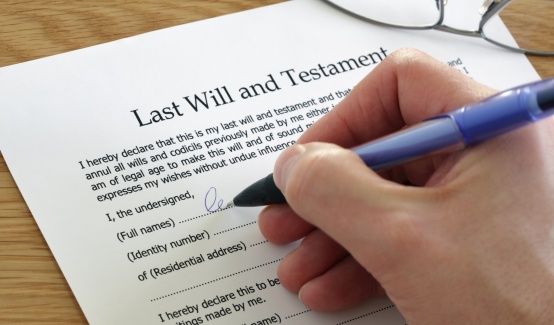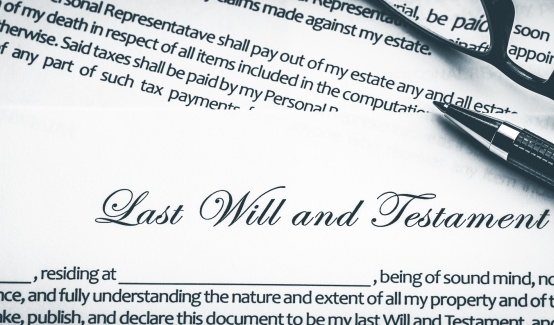
Guiding You Through Complex Estate Disputes With Care and Clarity
Disputes over Wills, estates and trusts can quickly become overwhelming. Our Will Disputes Lawyers help you resolve issues fairly and as early as possible, protecting your rights and your rightful inheritance.
Whether you’re challenging a Will or defending one, we work with professionalism and empathy to secure the best possible outcome.
Resolving Estate Disputes Promptly and Professionally
When conflict arises over a deceased estate, the emotional and financial toll can be significant. Delays and uncertainty often add to the stress, at an already emotional time.
Our experienced lawyers manage the legal complexities and advocate for your interests, helping you navigate every stage of the process with confidence. We aim to resolve disputes efficiently while preserving relationships and protecting your loved one’s legacy.

How Can We Help You?
Contesting or Challenging a Will
Helping you challenge a Will if you’ve been unfairly left out or not adequately provided for under family provision laws.
Family Provision Claims
Guiding you through the legal process to claim a fair share of the estate if you were financially dependent on the deceased.
Defending a Will
Supporting executors and beneficiaries in upholding the wishes of the deceased when the Will is being contested.
Undue Influence or Lack of Capacity
Acting in matters where the Will may not reflect the true intentions of the deceased due to external pressure or lack of legal capacity.
Executor Disputes
Resolving issues where executors fail to act appropriately, delay administration or put the estate at risk.
Probate & Letters of Administration
Assisting with court proceedings where there is disagreement over who should administer the estate or which Will is valid.
Intestacy Disputes
Helping you manage complex situations when someone dies without a Will and multiple parties claim an entitlement to the estate.
Superannuation Disputes
Acting on your behalf when superannuation funds are distributed unfairly or not according to your relationship or legal entitlement.
Estate Administration Issues
Supporting you with concerns about mismanagement, delays or improper conduct in the administration of a trust or estate.
Two Easy Ways to Get Started With Us
Book A Free 15-Minute Discussion
Speak with one of our experienced lawyers to get early advice, understand your options, and find out how we can help, with no cost and no pressure.
Call Us Now – 1300 761 803
Prefer to speak with someone directly? Call us today to chat with our team, and we’ll guide you through the next steps or help you choose the right appointment.
Resolve Will Disputes With Trusted Legal Support
If you’re involved in a dispute over a Will, our experienced Estate Lawyers are here to help. We provide clear, compassionate advice to resolve conflicts fairly – protecting your rights, entitlements, and your loved one’s legacy.
Frequently Asked Questions
Can I contest a will if I’ve been left out or received less than expected?
Yes. If you are an eligible person under the Succession Act 2006 (NSW) and believe you’ve been inadequately provided for, you may apply to the Supreme Court for a family provision order. You’ll need to demonstrate financial need and that the deceased person owed you a moral obligation.
Who is considered an ‘eligible person’ under NSW law?
Eligible persons include a spouse, de facto partner, child, adopted child, former spouse or anyone who lived in the deceased’s household and was financially dependent. The court will examine all the circumstances when determining whether adequate provision was made from the deceased person’s estate.
What is the difference between contesting and challenging a Will?
A person claims against a Will by either contesting it (seeking further provision) or challenging its validity. Challenges may involve issues like testamentary capacity or undue influence. Contesting a Will, on the other hand, means applying for adequate provision under a family provision claim.
How does the court decide what’s a fair share of the estate?
The court considers your financial position, your relationship to the Will maker, and all the circumstances, including your financial need and the size of the estate. It weighs your claim against the needs of other beneficiaries and whether the deceased person had a duty to provide for you.
Are there time limits for bringing a Will dispute in NSW?
Yes. You must apply for a family provision order within 12 months of the deceased person’s death. Time limits are strictly enforced, so it’s essential to act quickly. If the deadline has passed, you may still apply, but you’ll need to justify the delay to the Supreme Court.
What if the deceased had no Will, can I still make a claim?
Yes. If there is no last Will, the estate is distributed under intestacy rules. Eligible persons may still apply for further provision from the deceased person’s estate if they were inadequately provided for. These claims are also determined by the Supreme Court under the Succession Act.
Can an executor be removed if they are not doing their job?
Yes. The court can remove an executor who is mismanaging assets, delaying the grant of probate, or acting unfairly toward beneficiaries. This often occurs when settlement negotiations fail, the person handling the estate risks the estate’s value, or fails to follow the last Will.
Will I have to go to court to resolve a will dispute?
Generally speaking, many Will disputes are resolved outside the court through settlement negotiations. However, if an agreement isn’t reached, the Supreme Court may decide the matter. If you’re unsure, an obligation-free consultation with our knowledgeable Estate Lawyers can clarify the process and likely legal fees.







